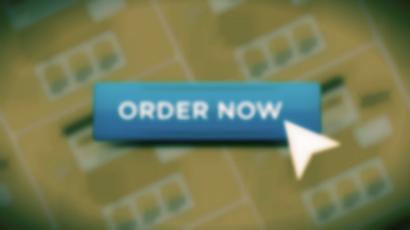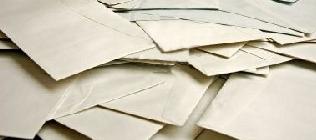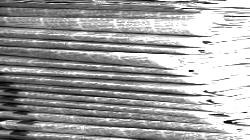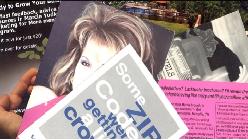The Sales Letter FAQ: Frequently Asked Questions about Sales Letters Campaigns
by Marcia Yudkin
Click on any of the headings below to go to that
section of the FAQ, or just read down
the page.
I. INGREDIENTS OF AN EFFECTIVE SALES LETTER
1. What are the three most important ingredients of a sales letter?
2. How can I boost my credibility in the letter?
3. When should I personalize a letter?
4. Do I need an order form?
5. Is there anything else that boosts response?
II. WRITING AND FORMATTING THE SALES LETTER AND ENVELOPE
1. How long should my sales letter be?
2. If I'm sending a brochure, do I need a sales letter too?
3. What font style and font size should I use in a letter?
4. Should I incorporate a photo and fancy graphics into my letter?
5. Do I need "teaser copy" on the envelope?
6. How should I address the envelopes?
7. Should I use stamps, metered postage or a permit number on the envelope?

III. SENDING OUT THE SALES LETTER
1. What's the best time of year for direct mail?
2. Where can I get appropriate names and addresses to mail to?
3. What response rate can I expect?
4. Does it ever make sense to repeat a mailing to the same list?
5. Do you have any other tips on saving money with direct mail?
IV. SALES LETTERS VIA EMAIL AND ON THE WEB
1. Do the same principles apply to sales letters sent by email?
2. How do I find lists to send email sales letters to?
3. Does it make sense to post a sales letter at a web site?
V. SAMPLE SALES LETTERS
1.
Sample fundraising letter for nonprofit
organization
2.
Sample business-to-business letter from
printing company
VI. STILL NEED HELP?
1. What are the three most important ingredients of a sales letter?
The three most important ingredients of a sales letter are an attention-getting headline, a specific offer and a P.S.
The headline, placed before the salutation, should make a claim or a promise that ties in with recipients' needs and interests. For instance:
- Whatever the Language, We'll Get Your Message Across Right - And With 25 Percent Savings the First Time You Hire Us!
- We'll Prepare Those Pesky 1099s and W-2s for Your Business Right Away - Absolutely Free!
- Finally, an Organization That Fights Like Crazy to Protect and Heal Abused Children!
Your letter needs a clear and compelling offer, an explicit transaction that you are inviting the reader to make. Don't write what I call a "Hello, I exist" sales letter. Here's an example of an offer:
- For only $29.95 you can have unlimited use of our health club for one month, along with a one-hour private session with one of our certified fitness trainers.
Your P.S., which is the second most read element in the letter after the headline, should mobilize the reader to act now. Provide an incentive for acting fast, or toss in an additional bonus. For instance:
- P.S. Charge your membership to your credit card in four equal payments for no additional cost - and receive a full-color desk calendar if you respond by November 10.
2. How can I boost my credibility in the letter?
A guarantee removes the risk of buying and makes it easier for someone to take a leap of trust in you. The more specific your guarantee, the more compelling it is. Counterintuitively, a longer guarantee - 90 days or even a year instead of just 30 days - works better. And try being more specific than just "satisfaction guaranteed":
Testimonials, quotes from satisfied customers, bear witness to the results you've already produced, and to subjective qualities about your work that others can best vouch for. For example:

3. When should I personalize a letter?
Usually "mail-merging" the letter so that the letter addresses the recipient personally boosts response. However, only testing can reveal the extent to which the extra trouble and expense pay off. If you are sending a relatively small number of letters and can take the time to mail merge, definitely do it. Yet don't hold back from an otherwise promising mailing if mail merging isn't feasible.
If you don't use "mail merge," begin the letter with a group noun that accurately characterizes your recipients. For instance: "Dear Homeowner"; "Dear Investor"; "Dear Music Teacher"; "Dear Concerned Citizen"; "Dear
Technology Executive"; etc.
4. Do I need an order form?
You always want to give people as many options for responding as possible. Some will want to order by phone, some by fax, some by mail and some from a web site. A form makes it easier to respond by fax or mail. Even if you're looking for inquiries rather than sales from your letter, a form can enable your letter recipient to ask for you to call him or her, for further details to be sent or to be taken off your list.
5. Is there anything else that boosts response?
Two more things. First, include an explicit call to action. Tell your reader exactly what action or actions you want him or her to take after reading the letter. For example:
Second, for non-local mailings a toll-free number almost always increases response.
1. How long should my sales letter be?
As long as it takes to arouse interest, lay out the whole offer, address possible objections and ask the reader to take action. Sometimes this takes one page, sometimes four.
Professional copywriters say that two-page letters generally outpull one-pagers, and that even eight pages may not be too long. Those who are not interested won't read even one page, and those who are will read eight. So don't feel you have to cram your whole sales message into one page to get action.
2. If I'm sending a brochure, do I need a sales letter too?
Definitely! A brochure doesn't make a personal connection. It doesn't answer the questions, "Who are you? And why are you sending this to me?" Always lay out your best case for your offer in the sales letter, and enclose the brochure if you feel it's necessary to provide further details or to add credibility. Just be clear that it's always the letter, not the brochure, that really sells.
|
Write
an Effective, No-Hype Long
Sales Page
Follow the steps in a
new online copywriting
course to create a thorough,
non-obnoxious, persuasive
sales page for your own (or
a client's) event, coaching
program, tour, retreat,
infoproduct, etc.
Learn to write
long sales copy. |
|

Long Sales Copy Online
Course |
|
3. What font style and font size should I use in a letter?
The closer you can approximate the look of a typewritten letter, the more closely people read the letter. Even in the era of desktop publishing, this has been proven again and again. Never "justify" (line up evenly) the right-hand margin, which takes away enormously from its impact as a letter.
As for size, be kind to over-fifty folks who can't manage smaller print any more. Usually 11- or 12-point type work best.
4. Should I incorporate a photo and fancy graphics into my letter?
A friendly photo of the service provider can help humanize the offering, while an appealing photo of a product for sale can help it come to life as well. Make sure you caption every picture, since captions get high readership.
Fancy graphics can lower response when they make the letter look more like a highly processed advertisement and less like a person-to-person letter.
5. Do I need "teaser copy" on the envelope?
Sometimes a marketing message on the envelope puts your mail into the "don't dare ignore" or the "hey, what's this?" category. For instance, "An Important Message About Your Mortgage": would you dare throw that away without reading? How about "How to Buy a Pentium Computer for One-Third the Retail Price": wouldn't you want to know how?
On the other hand, if you're not creative enough, the "teaser copy" tells the recipient just enough so that they know they can safely trash the letter without opening it.
6. How should I address the envelopes?
Printing the name and address directly on the envelope, without a mailing label, improves response when recipients don't already know you. Mailing labels work fine when customers recognize your return address and enjoy hearing from you.
Handwriting addresses is one of the surest ways to get your envelope opened by recipients. Some very successful direct mailers employ small armies of high school kids with decent penmanship for this purpose. If you're convinced that handwriting would totally clash with your company image, though (say, if you're a bank), don't do it.
7. Should I use stamps, metered postage or a permit number on the envelope?
Commemorative stamps increase the odds of recipients opening your letter; several brightly colored stamps adding up to the correct postage work even better than just one stamp. Printed permits and metered postage won't affect response if recipients already have a positive attitude toward your company, as identified in the return address.
1. What's the best time of year for direct mail?
It depends. Retail businesses often go dead in January, and yet for seminar or consulting businesses and health clubs, January is a booming month. Similarly, August may be a terrible time to promote computer repair, but perfect for pitching back-to-school specials or fall foliage tours. Even an ordinarily unpromising time can work well with a deeply discounted offer.
2. Where can I get appropriate names and addresses to mail to?
Build your own in-house customer and prospect list and mail to it frequently. To find appropriate names and addresses of prospective customers, contact a mailing list broker, whom you'll find listed in the Yellow Pages.
List brokers can help you mail to such precise categories as "boat owners in Zip Codes 021XX to 028XX who make more than $150,000 a year" or "new businesses within a 30-mile radius of Rapid City."
|
Get Your
Lead-Generation Campaign into
High Gear This Month!
Learn step by step how to rustle up customers by sending out compelling, results-getting letters. Includes 10 sample letters and commentary on the different strategies they exemplify, from a variety of business-to-business and business-to consumer industries.
Launch
your lead-generation campaign.
|
3. What response rate can I expect?
This is the wrong question to focus on. Instead, figure out the response you need for the mailing to be profitable. If you're selling $100,000 magnetrometers, even one sale coming out of a mailing to 20,000 customers makes it worthwhile. If you're selling a $14.95 book, even a 5 percent response (usually, an unrealistic expectation) will mean the mailing loses you money.
With that said, you should know that direct mail pros are generally happy to get a response of from half a percent (.005) to one and a half percent (.015) from a sales letter.
4. Does it ever make sense to repeat a mailing to the same list?
Yes! If you've gotten a healthy response to an initial mailing, the very same mailing sent out again two or three weeks later should prompt additional responses of about half again of the original response.
5. Do you have any other tips on saving money with direct mail?
Consider postcards. They always at least get a glance from the recipient, and with presorting (ask the post office about this) can cost half the postage of a traditional letter. They work especially well for special offers, announcements of upcoming events, inviting inquiries and increasing store traffic for a sale.
IV. SALES LETTERS VIA EMAIL AND ON THE WEB
1. Do the same principles apply to sales letters sent by email?
Yes, the three most important elements of a sales letter sent by email are an attention-getting headline, a specific offer and a P.S. If you have mastered the art of writing a compelling paper sales letter, you know almost everything you need to know to get response by email.
Just remember that people's attention spans are significantly shorter when they read at their computers. And keep in mind that folks have less tolerance for receiving sales letters from strangers by email compared to postal mail.
2. How do I find lists to send email sales letters to?
You'll get the greatest response from email letters to your own "house list" - people who have requested email contact from you. If you lack the patience to collect your own subscriber list, or want to supplement it, look for companies that rent "targeted opt-in email lists" or "permission email lists."
Stay away from "bulk mail" list providers or those who harvest email lists from Web sites and discussion forums. Sending your sales letter to people who have not given permission to be contacted puts you in the despised category of "spammer."
3. Does it make sense to post a sales letter at a web site?
Certainly! In
fact, one school of thought holds that
you will maximize your online sales by
constructing your entire web site as a
sales letter and order form, with no
other content. Without going that
far, you can create more intimacy with
your Web site visitor by using the sales
letter format.
V. SAMPLE SALES LETTERS
Download a PDF file
that includes a sample fundraising
letter for a nonprofit organization and
a sample sales letter for a printing
company. Both illustrate the
principles described here.
Download
two free sample sales letters.
VI. STILL NEED HELP?
Marcia Yudkin can take your existing letter or draft and add sizzle to it without breaking your budget. She's the author of 6 Steps to Free Publicity, Persuading on Paper: The Complete Guide to Writing Copy That Pulls in Business and
14 other books.
Study a
course that ratchets up your sales letter skills, either for yourself or clients.
Get 10
creative and lively sample
lead-generating letters for
industries ranging from landscaping to
financial services to martial arts
classes.
Call Marcia Yudkin at (413) 563-4134 or e-mail her at marcia@yudkin.com to discuss your
direct mail copy or campaign.
Copyright © 1999, 2002,
2006 Marcia Yudkin. All rights reserved.
|









